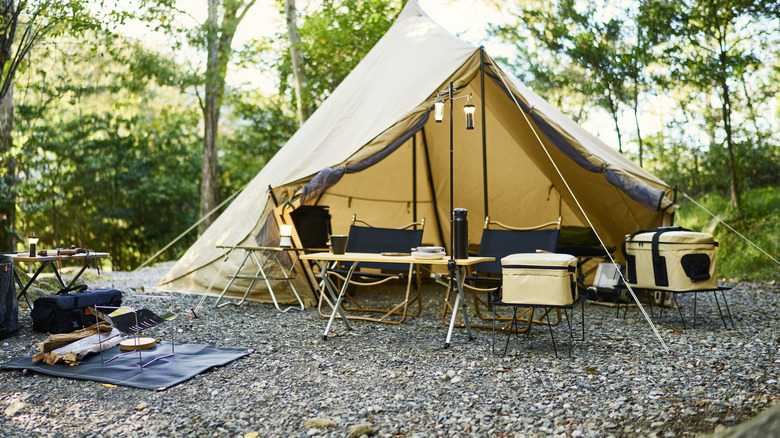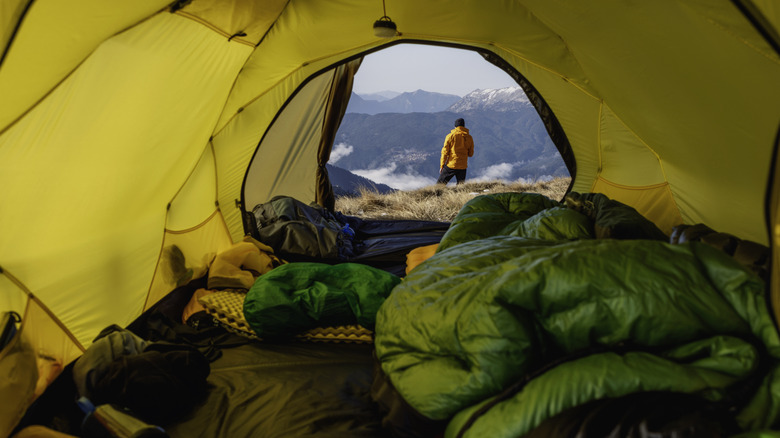The Supposedly 'Eco-Friendly' Camping Item Commonly Sold At Outdoor Stores You Should Avoid Using
Any avid traveler will tell you that having a solid packing list is key to vacation success –– and this is twice as true if the trip includes camping. Whether you're spending a couple of nights camping under the stars in one of America's national parks or backpacking across Europe and crashing at free campsites along the way, having the right equipment can make or break your experience. While essential camping retreat items like a lightweight sleeping bag and functional camp stove can make the great outdoors feel a bit more like home, there's one common household item you can probably leave behind: Soap.
Though many outdoor stores sell "eco-friendly" soap made for campers, improper use of this item can still cause irreparable damage to the local environment. All soap –– even biodegradable products made entirely from natural ingredients –– contains ingredients that can contaminate natural sources of water and disturb the wildlife living there. That's why you should always avoid using soap (as well as lotions, body oils, sunscreens, and bug sprays) when entering any body of water.
If you do decide to bring soap along to clean dishes or wash clothing, never dump used water into nearby sources like lakes, rivers, or streams. When camping, it's always important to follow campsite rules and adhere to Leave No Trace guidelines. Every person in your party should do their part to maintain a pristine environment and preserve the site for the animals, plants, and future campers who also want to enjoy it.
How to maintain cleanliness and proper hygiene while camping
Of course, keeping your campsite — and your body — clean while camping is a crucial part of having a pleasant outdoor experience. While it's ill-advised to use soap while bathing in a natural body of water, there are many ways to stay fresh while enjoying the wilderness. Washing without soap in fresh water is an effective way to rid your skin of dirt and odor-causing oils without potentially damaging the local ecosystem.
Pre-moistened towelettes like baby wipes are also a great way to keep your armpits and private bits clean and fragrance-free while camping –– just be sure to pack out any used wipes out when leaving the site. Having a bottle of hand sanitizer in tow is also helpful after activities, meals, and toilet trips. Always opt for unscented products to avoid attracting unwanted animals and insects to your camp.
In cases where using soap is an absolute must, choose biodegradable products that are free of phthalates, sulfates, and parabens, all of which can be harmful to the environment. Many multipurpose camping soaps can be used to wash your body, clothing, and dishes. For bathing, moisten a washcloth with your own water and a small amount of soap to clean only the necessary areas. All soapy water should be disposed of at least 200 feet away from natural water sources and should either be scattered over a wide area or poured into a hole dug 6 to 8 inches deep.

